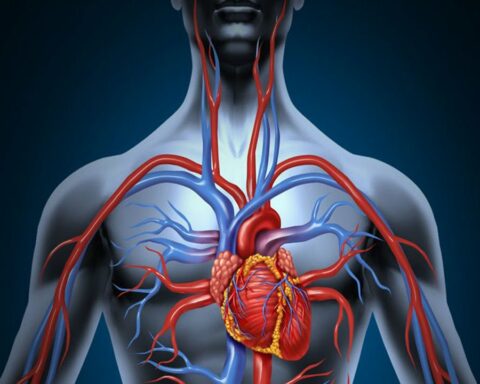Although eggs are one of the kitchen’s most staple ingredients, they are increasingly gaining a bad reputation because of their high cholesterol levels. Well, how many should you eat a day?
‘How many eggs should you eat a day?’ this question sounds familiar and it’s very mention rings bells, yet for every good reason. Remember that a whole egg is so nutritious that it does not need any other thing to convert itself into a chick and nurture it until it’s hatched. On the entire planet, eggs are undeniably among the most nutritious foods. Yet, many people are now abhorring eggs are they are said to be harboring high amounts of cholesterol. So then, let’s crack the code! Peer into this article and know all you got to know about eggs and cholesterol as well as how many eggs you can take a day.
How does the body regulate blood cholesterol?
First thing’s first; let’s understand how the body regulates blood cholesterol levels. For a long time, cholesterol has had a bad reputation since many studies have linked it to high risks of heart disease and other lifestyle problems. Yet, the evidence is mixed. Remember, the body functions well because of multiple systems that rely on hormones like cortisol, estrogen, and testosterone. And to make all these, cholesterol comes in handy, which is why it’s not all that bad.
The body also recognizes the importance of cholesterol in the body, and it has developed a mechanism to ensure that it always has enough. The dietary cholesterol is not always enough, and so the liver produces its cholesterol. Does this mean that the two sources (diet and liver) can add up to excess cholesterol levels? Absolutely no; when the liver detects high amounts of cholesterol from the diet, it reduces its production to keep the levels from becoming excess. This means that if the cholesterol levels in the body have to change, such a change is only meager. However, this does not mean that you have to eat lots of cholesterol-rich foods willy nilly, as this might lead to a moderate increase in blood cholesterol levels.
What happens when you eat several whole eggs a day?
For a long time, people have been advised against eating whole eggs, and the limit is placed at 2-6yolks a week. Unfortunately, though, this limit lacks substantial scientific backing. One study by Healthline examined the effect of people eating several whole eggs daily on cholesterol levels. In the study, participants belonged to two groups; one group taking egg substitutes, while the other taking 1-3eggs daily. At the end of the study, it was clear that taking 1-3eggs improved good cholesterol while the bad cholesterols were either not affected or slightly increased. Antioxidants such as zeaxanthin and lutein increased in both cases, and those taking omega-3 enriched eggs recorded lower triglyceride amounts.
From the study, it was clear that the effect of eating several eggs daily on cholesterol levels varied from one person to the next. 70% of participants had their bad cholesterols not affected, while 30% were hyper-responsive and registered increased bad cholesterol levels. What’s more, the bad cholesterol particles changed from small to dense, and finally large, a factor that reduces the risk of heart disease. Thus, even though taking several whole eggs may increase bad cholesterol levels, the bad cholesterol particles also enlarge, lowering the risk of heart disease. The algorithm leads to a unique balance that ends up in a no-concern. Still, three eggs seem to be healthy for most people.
Eggs and heart disease; what you should know
In science, there are many studies, the two main ones being observational and clinical/experimental. While experimental studies largely rely on lab experiments and making inferences, observational studies majorly follow groups of people and observe trends. Such studies may often point to associations and linkages, but may not reveal direct causes or relationships between two variables.
Lots of observational studies have been done to examine the effect of egg consumption on heart disease, and the results have a lot to offer. Statistical studies have done the same and there is a handful for these. Both studies show that people who regularly eat eggs are no more likely predisposed to heart disease than those who don’t. Some studies even showed taking eggs could reduce the risk for stroke. However, people with diabetes type 2 do well to control their intake of eggs. Sticking to a low-fat diet and eating small amounts of eggs can help people with diabetes reduce their risk for heart disease.
Other health benefits of eggs
When thinking about eggs, look and think past cholesterol. There are many health benefits that you can reap from eggs, which are among the planet’s most nutritious foods. Moderation helps you reap the most health advantages such as;
- Weight loss; eggs are among the foods that help with weight loss, which is why they form part of the weight loss plan. Since they help you feel full for longer, they are a good option for shaking off some extra pounds.
- Eggs are rich in choline; your body cells in their entirety need choline for their functionality.
- Eye and brain health; if you think about have good cognitive abilities and eyesight, you will appreciate eggs. Lutein and zeaxanthin help lower the risk of cognitive decline, macular degeneration, and cataracts.
- High in proteins; eggs are among the best high-quality protein sources since they have all the nine essential amino acids. Such proteins are good for your muscles and bones.
- Eggs are easy to prepare and quite versatile so you can fit them into your diet in many ways.
How much is too much?
This is a big question whose answers most people would appreciate getting. Unfortunately, three is the maximum number of eggs per day that studies have explored. Science classifies anything beyond three as an uncharted zone and that’s why it has not been explored. However, eating up to three is generally safe for most healthy people.
Conclusion
Eggs are admittedly among the earth’s richest food sources. However, they have earned a bad reputation due to their high cholesterol content. This article explores all you need to know about eggs and cholesterol. As a rule of thumb, anything between one and three eggs per day is safe.
Credits
We would like to thank the below contributors who have helped us to write this article:
- Learn to Enjoy Self-care Routine - September 21, 2023
- Jonathan Aufray’s Story - July 29, 2023
- From Public Housing To Ivy League: The Inspiring Journey of Crystaltharrell.com and its Founder - June 7, 2023









